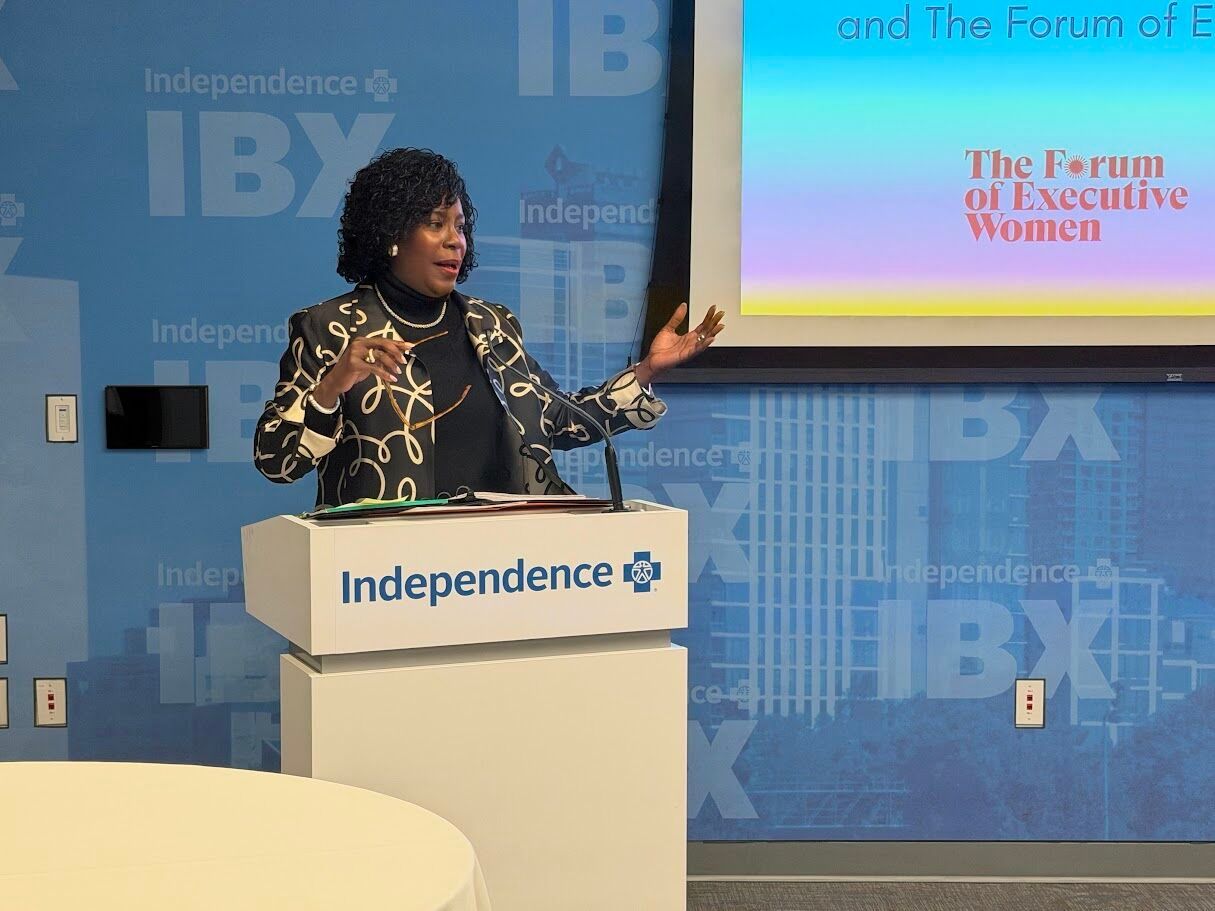Caring is the New “C” in The C-Suite
“Caring” for Loved Ones in the Triple-decker Sandwich Generation
The Forum is a membership organization and a network of over 600 women leaders representing diverse industries, backgrounds, and lived experiences. In honor of Women's Health Month we are highlighting the thought leadership of Forum Member Betty Long.
Betty Long, RN, MHA, is the President, CEO and Founder of Guardian Nurses Healthcare Advocates and a nationally recognized expert and speaker on patient advocacy.

In the eighties, the term “sandwich generation” aptly described the situation of mothers who cared for their young children and aging parents simultaneously. Today, many women find themselves juggling careers while caring for elderly parents, supporting adult children who return or remain at home, and in some cases lending a hand with grandchildren. It’s the perfect storm that has unfolded to create a new generation: the Triple Decker Sandwich.
Assuming the role of caregiver and navigating the healthcare system can be daunting. Even with the organizational and decision-making skills that most successful business leaders can bring to the task, these are unchartered waters, and emotions can run high when a loved-one’s health is at stake.
Take, for instance, the case of an 80-year-old woman who was rushed to the ER early one morning with a fast heartbeat and severe eye pain. Her daughter left work to join her at the ER, arriving just a few hours later. Her mother reported that ‘someone told me I have a detached retina. They gave me medication, but I don’t know what it was.’ Her daughter spoke with her mother’s nurse and asked for the ophthalmologist to come bedside to help connect the dots. Getting both the eye doctor and her mother’s cardiologist together enabled them to create a game plan and arrange for the vision-sparing eye surgery she required to occur later that afternoon.
What would have happened to her mother if she wasn’t there to advocate for her? Advocacy is the ticket to success. What can you do to empower your loved one and yourself? While every journey will be different, there are several steps to prepare for successful advocacy:
Advocacy Tips for Caregivers
- Gather up-to-date records, take them to appointments.
- Utilize patient portals: Every health system has an electronic portal. Sign up or gather the necessary sign-on information from you loved one so you can have access to electronic medical record and streamlined communication to and from providers.
- Initiate legal paperwork. Gather existing legal forms or have discussions to determine who is going to be the decision maker when your loved one is not able to make decisions:
- Healthcare power of attorney
- Healthcare advance directive
- Stand your ground. You have questions and deserve answers at your appointment. If a provider appears busy or distracted, hold your ground, ask questions, and let them know that you expect clear responses with a roadmap for your loved-one’s care. If you don’t get what you are looking for, push back. And if that fails, it’s time to find another doctor.
- Keep providers up to date: We as consumers of healthcare often take it for granted that doctors are talking to each other – don’t assume that is the case.
- Get a second opinion. Don’t feel pressured to follow a care plan if something doesn’t feel right. Let your doctor know that you will consider the plan and get a second opinion. They are typically covered by insurance, but if concerned, check with your insurance provider.
- If you cannot get an appointment with a new doctor, it can be beneficial to make an appointment with a nurse practitioner within the group, which will establish your loved one as a patient in that practice. Thereafter, it should be easier to get access to the doctor within the same group.
- Keep family members in the loop. Create your own email or text chain, or utilize free websites or apps such as CaringBridge.org to communicate about your loved one with family and friends.
Another Layer of the Sandwich: Untangling the Insurance Web
Navigating today’s insurance labyrinth compounds the nearly impossible balancing act. Be prepared to have your advocacy skills and patience put to the test, especially when it comes to claim denials.
A 2023 Kaiser Family Foundation Independent survey of more than 3600 U.S. adults underscores that nearly 60% of insured adults experience problems, and half report a lack of understanding of how aspects of their insurance works. Concerns include cost, complexity, challenges with access, and frustration with navigating an appeal of denied claims.
Healthcare claim denials account for approximately 17% of claims, and can range as high as 49%, depending on the healthcare provider. Several systemic issues hinder patients’ access and understanding of their insurance coverage and the appeals process for denials due to unclear or misleading policy language or inconsistent application of medical necessity criteria. In some cases, patients face unnecessary (sometimes intentional) delays in appeals process.
While studies show that 40% to 50% of health insurance denials are eventually overturned on appeal, the appeal process has posed a universal challenge for patients and caregivers to navigate, which is complicated by a lack of understanding of their benefits, coverage limitations, and where to find help.
You Don’t Need to Go It Alone
Understanding the challenges you are sure to encounter, it’s not unusual to feel isolated or ill-equipped to advocate for loved ones or deal with the healthcare system. Whether you find strength and support from family, or an outside group or organization, it’s important to identify the right people and resources that will help you along the way. Guardian Nurses Healthcare Advocates has advocated for more than 5000 patients over the past 20 years, and in addition to providing advocacy services, provides free informative healthcare and selfcare guidance on its Lighting Your Way podcast.
Armed with a plan and a support system in place, you can feel confident that your advocacy will improve your loved-one’s experience and enhance their clinical outcomes.
About Guardian Nurses Healthcare Advocates: Since 2003, Guardian Nurses Healthcare Advocates have advocated for patients and their families to ensure that they receive the healthcare benefits to which they are entitled under their insurance plans, including those governed by the Employee Retirement Income Security Act (ERISA). They are hired by private companies, health insurance brokers, Taft-Hartley health and welfare funds, and private individuals and families, most often to help navigate the complex landscape of insurance denials and appeals.
Thank you to Guardian Nurses Healthcare Advocates for sponsoring The Forum!
About Betty Long: Betty Long, RN, MHA, is the President, CEO and Founder of Guardian Nurses Healthcare Advocates and a nationally recognized expert and speaker on patient advocacy. As a registered nurse since 1986, she has a long history of healthcare advocacy with special expertise in critical care, long-term care and geriatric care management. Betty’s team has won 93% of cases on behalf of more than 5500 patients whose claims were denied, which translates into more than $1 million in patient savings. She is recipient of the 2024 Mary Ann Garrigan Award by the Board of the Nursing Archives Associates at the Howard Gotlieb Archival Research Center.



